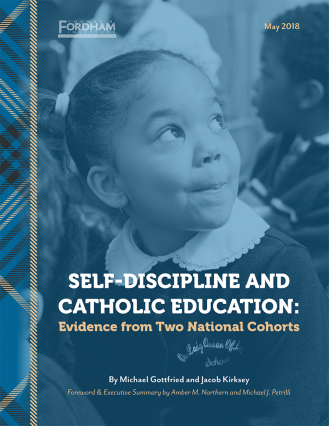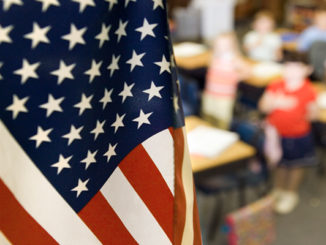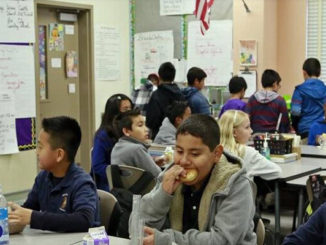
by Michael Gottfried and Jacob Kirksey
Regardless of where you stand on the debate currently raging over school discipline, one thing seems certain: Self-discipline is far better than the externally imposed kind.
.

Over the years, Catholic schools have been particularly committed to the formation of sound character, including the acquisition of self-discipline. But how well has that worked? We wanted to know whether students in Catholic school actually exhibit more self-discipline than their peers—and if so, what those schools can teach other public and private schools about how it can be fostered.
.
To lead the study, we recruited Michael Gottfried, Associate Professor at the University of California, Santa Barbara (UCSB). Jacob Kirksey, a doctoral student at UCSB, helped to analyze the data and co-wrote the report. To our knowledge, theirs is the first study to explore the potential effects of Catholic schooling on elementary students’ self-discipline.
.
Gottfried and Kirksey analyzed two waves of nationally representative data on elementary school students that were collected as part of the Early Childhood Longitudinal Study, Kindergarten (ECLS-K).
Their analysis revealed three key findings.
.
- Students in Catholic schools are less likely to act out or be disruptive than those in other private schools or in public schools. According to their teachers, Catholic school children argued, fought, got angry, acted impulsively, and disturbed ongoing activities less frequently.
- Students in Catholic schools exhibit more self-control than those in other private schools or public schools. Specifically, they were more likely to control their temper, respect others’ property, accept their fellow students’ ideas, and handle peer pressure.
- Regardless of demographics, students in Catholic schools exhibit more self-discipline than students in public schools and other private schools. Thus, there is at least some evidence that attending Catholic school may benefit all sorts of children.
It is important to recognize that these findings are not causal. Despite the authors’ efforts to construct a plausible control group, there may be unobservable differences between Catholic and other private school students. Still, the findings suggest three key takeaways.
- Schools that value and focus on self-discipline will likely do a better job of fostering it in children.
- Other schools have something to learn from Catholics schools when it comes to fostering self-discipline.
- We should not underestimate the power of religion to positively influence a child’s behavior—and shouldn’t restrict families’ choices on the basis of religion.
To the extent that school choice programs can widen access to great schools that provide an academic boost and promote self-discipline—Catholic or otherwise—they deserve our eternal support.



